Fear of corruption disrupts the reconstruction of liberated cities, and influential investors take advantage of the opportunity
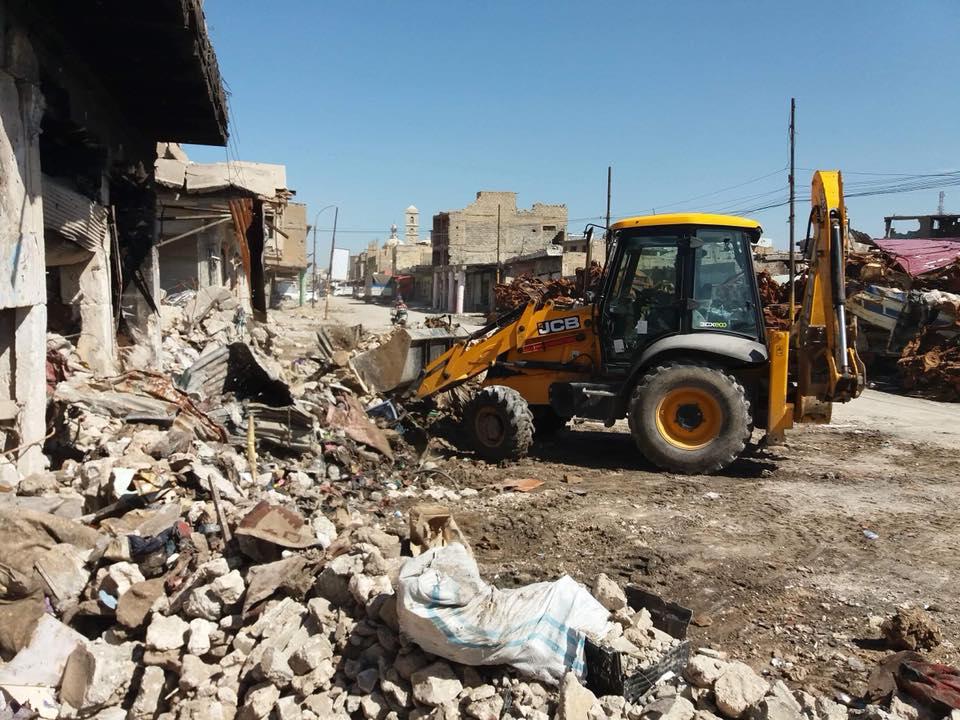
The war has been waged over the past two years and the liberated cities are still out of service. Hundreds of energy, water and sanitation projects are out of service and despite the Iraqi parliament’s approval of the highest budget since 2014, the government’s fear of corruption makes it reluctant to release money.
Any visitor is fascinated by the cities of Mosul, Anbar and Salah al-Din at first glance with the bright lights of the markets and dozens of luxury restaurants and large shopping centers, believing that these cities, which emerged from a devastating war against the organization of “Daesh” could rise again, and these features actually contributed to the return of life to these cities. Infrastructure projects of electricity and water, hospitals, destroyed buildings and broken roads are still the same.
The task of rebuilding the infrastructure rests with the federal government and the councils of these provinces, but the fear of corruption makes the government reluctant to spend money, especially as these cities are subject to political conflicts, rivalry or competition for powerful positions and use these government posts to obtain funds that go practically into the pockets of corrupt officials.

But the other problem lies in the quotas and budget share granted by the federal government for reconstructing the provinces, the little allocated amounts are not commensurate with the need of these cities, for example, the reconstruction of Mosul requires, as per the estimation of the United Nations and international organizations, about two billion dollars, while the share of Mosul in the budget for the year 2019 is only ( 250) million US dollars. Al-Anbar’s share is only 150 million US dollars while Saladin’s share is 170 million dollars. These two cities need about one billion dollars for reconstruction.
The bureaucracy of Iraqi institutions and the process of reconstruction is slow. Despite the approval of the general budget for the current year in January, the government has not yet sent the budget funds to the provinces so far. It is often launched in May of each year. This means that the provincial councils have to spend this money within seven months or else they return the unspent money to the state treasury at the end of the year. This is a serious loophole that opens the door to corruption, as local officials are forced to submit forged documents for fictitious projects to the government in large amounts.
A national council member of Saeroon Coalition Sadiq Saleety says “The budget was approved more than a month ago, and we entered the third month and did not undertake any work on the investment plan for the current year. This delay will cause most projects not to be completed before the summer season.”
The federal government fears corruption, especially in the liberated provinces, which are witnessing major conflicts between rival proxies within the provincial councils and exchanging accusations among themselves in a competition for influential positions in the process of disbursing funds and obtaining contracts for reconstruction. The losing parties in these provinces are challenging the legitimacy of the political forces holding on the affairs of the councils of these provinces because of the end of their mandate two years ago. As these cities and the rest of the provinces have not seen local elections since 2013, while the parties seeking control of senior positions of conservatives and heads of councils maintain their positions at any cost.
But the important question, which impacts the reconstruction process in these cities, is limited to lucrative business ventures as well as limited infrastructure projects that also prove to be profitable in the end. It seems that the slowdown of the federal government in the start of the reconstruction process opened the door to companies and businessmen and small investors linked to political parties and armed factions and influential tribal sheikhs to carry out this task, but this is at the expense of impoverished citizens.
Dozens of large commercial markets and restaurants have emerged rapidly in the cities of Mosul, Tikrit, Ramadi, Falluja and other liberated cities. These public appearances have already contributed to the revival of these cities, but a few months later, major issues began to emerge.
Usually you will find a large commercial market or a luxury restaurant that lies just a few meters away from the garbage, broken streets and destroyed houses, which no one can find to be repaired because they are the functions of government agencies.
While such a growing business needs a good standard of living for the population, unemployment problems are rising in these cities, with the growing number of young graduates from universities and colleges, and the loss of many of their residents for their own businesses and their capital. The government is no longer able to create jobs in its institutions, as was the case before 2014, after the collapse of oil prices and the rise of Iraq’s debts due to the rising costs of the war against ISIS.
Recently private companies and investors have begun offering their services to the citizens of these cities to rebuild infrastructure, but the citizen are the one who bears the high financial costs.
In al-Bakr region of Ramadi, the center of Anbar, whose residents are struggling to return home, dozens of families have returned to their homes despite the lack of basic services such as water and electricity, better than staying in camps, says Abdul Majid al-Dulaimi. He also says ” We were supposed to get compensation from the government to rebuild our homes. We waited months and we decided to build hour homes by ourselves, while private companies started to offer their services in repairing the streets and delivering drinking water and electricity”.
Al-Dulaimi says that these companies are doing government jobs, but they refuse to pay high wages to repair the electricity poles. This is a good step, but we are surprised a few weeks after the failure of these pillars because these companies are doing poor jobs just to get the money and profit. No one monitors the work of these companies and they they are not held accountable as these private companies and are often owned by influential people, who may be politicians or tribal sheikhs or armed factions who have and impact and influence in the regions. ”
Many residents of Mosul and Anbar point to significant reconstruction of the city by the United Nations and international organizations, including hospitals, roads and bridges, but say these projects are limited and does not cover the massive destruction wreaked in these cities.
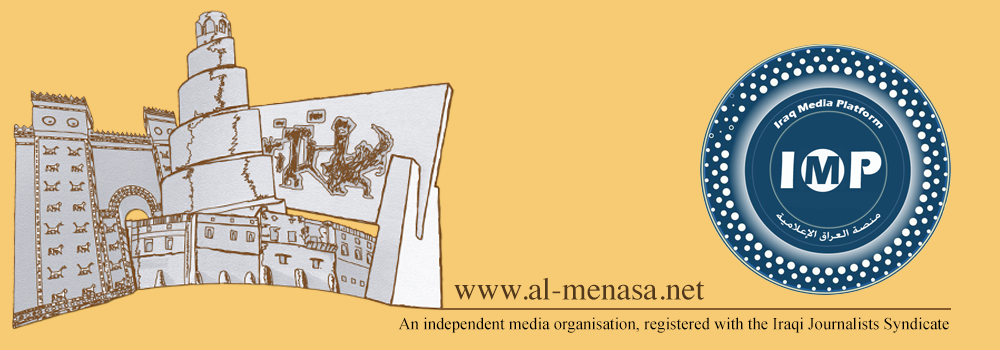
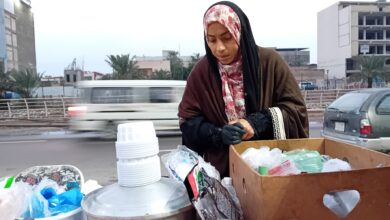
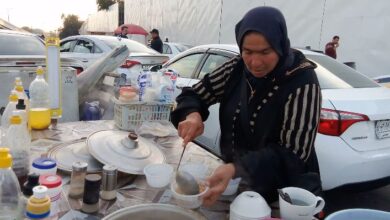
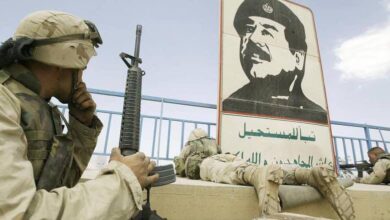
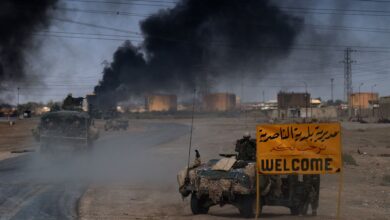
Great beat ! I wish to apprentice while you amend your site, how can i subscribe for a blog website? The account helped me a acceptable deal. I had been a little bit acquainted of this your broadcast provided bright clear concept
Viagra
Inc.
What’s Taking place i am new to this, I stumbled
upon this I have found It positively helpful and it has aided me out loads.
I’m hoping to give a contribution & help other
customers like its helped me. Good job.
Overnight Pharm Viagra
https://buypropeciaon.com/ – Propecia
I’m really impressed with your writing skills as well as
with the layout on your blog. Is this a paid theme or did you
customize it yourself? Either way keep up the nice quality writing,
it is rare to see a nice blog like this one today.
My coder is trying to convince me to move to .net from PHP.
I have always disliked the idea because
of the expenses. But he’s tryiong none the less. I’ve been using Movable-type on several websites for about a year and am concerned about switching to another platform.
I have heard fantastic things about blogengine.net.
Is there a way I can transfer all my wordpress posts into it?
Any kind of help would be greatly appreciated!
I couldn’t resist commenting. Perfectly written!
Simply want to say your article is as amazing. The clearness in your post is just great and i
could assume you are an expert on this subject.
Well with your permission allow me to grab
your feed to keep updated with forthcoming post.
Thanks a million and please keep up the rewarding work.
whoah this blog is excellent i really like studying your articles.
Keep up the good work! You already know, a lot of persons are looking round for this information, you could help them greatly.
This post is priceless. When can I find out more?
I am not sure where you are getting your info, but great topic.
I needs to spend some time learning much more or understanding more.
Thanks for magnificent info I was looking for this information for my mission.
Hey there! Do you use Twitter? I’d like to follow you if that would be ok.
I’m absolutely enjoying your blog and look forward to new updates.
buy cialis on line
comprar cialis generico foro
buy ivermectin 12 mg online
Forum Cialis Ou Levitra
https://buysildenshop.com/ – Viagra
finasteride tablets for sale
Very descriptive article, I enjoyed that bit.
Will there be a part 2? asmr https://app.gumroad.com/asmr2021/p/best-asmr-online asmr
It is really a great and useful piece of info. I am glad that you just
shared this useful info with us. Please stay us
informed like this. Thank you for sharing. scoliosis surgery
https://0401mm.tumblr.com/ scoliosis surgery
Hey there just wanted to give you a quick heads up and let you know a
few of the pictures aren’t loading correctly. I’m not sure why but I think
its a linking issue. I’ve tried it in two different browsers and both show the same
results. quest bars http://bit.ly/3jZgEA2 quest bars
http://buytadalafshop.com/ – online cialis
Hello are using WordPress for your blog platform?
I’m new to the blog world but I’m trying to get started and set up my own. Do you require any html coding
knowledge to make your own blog? Any help would be really appreciated!
cheap flights http://1704milesapart.tumblr.com/ cheap flights
If some one wishes expert view about blogging and site-building
then i suggest him/her to pay a quick visit this weblog, Keep up the nice job.
quest bars https://www.iherb.com/search?kw=quest%20bars quest bars
http://buystromectolon.com/ – stromectol walgreens
Ahaa, its nice discussion on the topic of this post at this place at this web site,
I have read all that, so now me also commenting here. scoliosis surgery https://coub.com/stories/962966-scoliosis-surgery scoliosis
surgery
Propecia Order Online
Lasix
https://buyzithromaxinf.com/ – zithromax pregnant
Kamagra Vs Cialis
plaquenil dosage for lupus
Priligy
Purchase Discount Finasteride
Propecia Canadian
zithromax online canada
https://buypriligyhop.com/ – reddit where buy priligy
https://buylasixshop.com/ – Lasix
https://buyplaquenilcv.com/ – hydroxychloroquine online order
gabapentin for dogs side effects
http://prednisonebuyon.com/ – Prednisone
Amoxicillin Stomach Upset
Cheap Prevacid Otc
prednisolone dosage
https://buyneurontine.com/ – Neurontine
Fine way of describing, and nice post to obtain information regarding my presentation subject, which i am going to
deliver in school. part time jobs hired in 30 minutes https://parttimejobshiredin30minutes.wildapricot.org/
Appreciate the recommendation. Will try it out.
Hi there, just became alert to your blog through Google, and found that it is truly informative.
I am going to watch out for brussels. I will be grateful if you continue this in future.
A lot of people will be benefited from your writing.
Cheers!
Finasteride Avodart Propecia
cialis viagra mix
Discount Cheapeast Cod Bentyl Medicine Online Shop With Free Shipping
viagra and pe
Cialis
Fluconazole By Mail
buy priligy generic fraud
Obestat 15mg
ivermectin stromectol scabies
Amoxil 875mg
proscar finasteride
Cialis
furosemide classification
Dutasteride Canada
Levitra Dangers
Jie Bao Viagra
Propecia Grupos Sanguineos
where can i buy prednisone with no rx
Purchase Bupropian Online can you buy cialis online
hydroxychloroquine over the counter
Duramale Vs Priligy
Buy Viagra With Paypal Account
cialis online soft tab
Kanadian Pharmacy
what is gabapentin prescribed for
Propecia Dose It Really Work
Propecia Al Femminile
Cialis In Venlo Kaufen
propecia results
Сколько теннисисты зарабатывают на турнирах Большого шлема you can find out more
levitra generique 20mg en ligne Blenty https://www.alevitrasp.com Waitle Bestellen Viagra Online
How To Get Cialis Without Doctor Plaquenil
Therefore perform surveillance esophagoscopy to detect the tumor at an early stage. prednisolone gout
Plaquenil Pjohmv
That article is just the thing I am after.
when to take viagra for best results viagra prescription cost how long does 25mg viagra last
medicine for erectile treating ed natural cure for ed
whoah this blog is excellent i like studying your articles.
Stay up the good work! You already know, lots of individuals are looking
around for this info, you can aid them greatly.
what are critical thinking skills
levels of critical thinking in nursing
from critical thinking to argument
ucl dissertation help
phd dissertation writing help
proquest dissertation
search writing help
dissertation help galway
do my dissertation
help with my dissertation
buy dissertation online
doctoral dissertation writing assistance
dissertation editing
dissertation proposal
define dissertation
online casino bonuses
free no deposit
free welcome bonus no deposit required
dissertation
dissertation
best dissertation writing service review
free money casino
no deposit bonus casinos
gambling casino online bonus
buy the help
top servis
dissertation cover page
best online usa casinos
free no deposit
real cash online casino
marketing acknowledgement
dissertation acknowledgement sample
thesis and dissertation writing
dissertation proposal template
top servis
medical dissertation writing service
bonus no deposit
online american casinos
usa casino online
writing dissertation chapters
writing your dissertation in a week
doctoral dissertation
top us online casinos
bingo casino online
casino no deposit welcome bonus
top online casinos
bonus casino no deposit
casino free money
best casino online usa
free cash bonus no deposit casino
free cash no deposit casino
deposit bonus casino
no deposit sign up bonus
mobile casinos
online bingo real money
best casino reviews
top casino site
us online casino
casino no deposit bonus win real money usa
bingo online for money
online casinos no deposit
online casino free signup bonus no deposit required
online casino usa real money
vpn to buy
zenmate free vpn
windscribe vpn reviews
online gambling reviews
top online casinos
casino free money
browser vpn free
cisco vpn
spotflux vpn
best no deposit bonus
online casinos free money
online mobile casino
best vpn for xbox one
vpn buy
best vpn services
express vpn free windows
best vpn for apple
norton vpn review
win money online
bovada online casino
american online casinos
free vpn for chromebook
hotspot free vpn
best vpn reddit
online casino free bonus no deposit
bonus casino online
best online casinos usa
best browser vpn
buy dedicated ip vpn
vpn for pc free
online casinos
no deposit online casino real money
online slots real money free bonus
free mexican vpn
free vpn server
what is the best vpn?
mobile casino
online casinos for us players
online casinos real money
gaming vpn free
best vpn extension for chrome
vpn to buy
casino deposit bonus
best free casino bonus no deposit
usa casino
best vpn software
free vpn server list
best vpn for windows 10
free vpn for pc
avg vpn
express vpn free
casino no deposit bonus win real money usa
free welcome bonus
no deposit casino games
vpn for windows free
best free vpn for firestick
vpn for windows free
top casino site
online casino usa real money
no deposit casino online
Thank you ever so for you blog article.Thanks Again. Fantastic.
casino play for real money
cash casino games
top us online casino
latino gay dating site’s
hiv negative dating an hiv positive gay man
paid gay escort dating
free gay dating east tennessee
craigslist gay dating site
dating gay costa rican
dating sims
women dates local no fee
fb dating
free gay adult dating sites
dating site for gay
gay ginger dating sites
free dating online
free dating apps no fees
facebook dating site
intitle:dating
on line dating services
meet single
no credit card dating sites
dating sites absolutely free
dating sinulator online
gay white men dating black men
how much is membership for gay dating sites
dinner for eight gay dating
singles chat
zoosk dating
match single
gay hook up dating site
grindr gay dating site
gay trucker dating
local dating site
dating service
free singles dating
indy gay dating free
triad gay dating sites
gay piss play dating
plenty of fish dating site of free dating
dating services melbourne
no email dating site
deposit casino bonus
online casino free spins
best us online casino
free dating online dating
dating sjtes
datting
online casino games real money
free money no deposit
casino win real money
no deposit welcome bonus casino
online casino play for real money
best casino site
gay male cam chat
chat gay vegas
black gay chat
dafing sites
dating services contact australia
online payment sites
gay bi texy chat
gay boy jack off cam chat
bears.com official website gay chat room
gay fetish video chat
gay chat rooms no registration
gay sex cam chat mobile android
best gay chat rooms
chat gay quereetaro
gay chat roulette
gay chat randon
free gay chat
any gay college chat rooms?
chat gay en mexico.com
free gay chat phone numbers
gay chat phoenix
best gay chat
gay chat and hookup
random gay cam chat
gay skype chat room
gay bdsm chat
free gay chat lines in nc
one on one gay sex chat on camera for masterbation
boy chat strip nude webcam male gay
video chat older gay
gay chat phone numbers
fcn free gay chat free chat network
free gay/bi chat
gay widow chat site
chat for free gay webcam
chat avenue gay room
popular gay chat avenue
gay massachusetts chat no sign up
gay chat ru=oulette
top rated dating websites
free dating siwomen
pof (dating website)
internet dating
single ladies
shemale dating
nyhentai
free dating online dating
datng websites
free single date
skycouger gf
best dating websites online
over dating
free date web sites
which online dating site is best
top essay writing services
custom writing essays
help writing college essay
buy essay
easy essay writer
help on essay
sat essay writing help
essay writing services for cheap
narrative essay help
great essay writers
buy cheap essays
mba essay writing services
where can i buy essays online
help for essay writing
i need someone to write my essay
cheap essays for sale
help with essay papers
expository essay help
buy cheap essay
i need help writing a compare and contrast essay
cheap essay writer
custom english essays
help essay
pay for essay writing
essay title help
college application essay writers
using essay writing service
college essay editing service
medical school essay writing service
essay help pros
write my essay wikipedia
help writing essays for scholarships
write my essay services
online essay service
help with college essays
custome essay
can you write my essay for me
essay writer reviews
custom essay writing canada
write my essay website
cheap essay writer
pay to write my essay
extended essay help
services essay
essay helper
custom written essays
buy essays online reviews
essay assignment help
write my essay south park
best mba essay writing service
help me write a narrative essay
paid essay writers
write my essay website
write my essay review
college essay editing service
essay writers cheap
i need help writing a compare and contrast essay
custom essay meister review
custom law essay
college application essay writing service
essay help chat room
my custom essay
helping writing essay
essay services reviews
write my essay students
write my law essay
help with writing college application essay
write my essay generator
best cheap essay
best essay
buying an essay
best custom essay writers
write my essay paper
persuasive essay helper
help in writing an essay
can somebody write my essay
definition essay help
reliable essay writing service
custom essays essay help
write my admissions essay
essay online help
college application essay writing help
writing essay help
essay title help
cheap essay buy
online essay service
need help writing essay
Sharing is caring the say, and you’ve done a fantastic job in sharing your knowledge about Search Engine Optimization on your blog. It would be great if you check out my page, too, at xrank.cyou
essay editing service reviews
essay writing company reviews
cheap custom essays online
help 123 essay
help writing an essay for college
write my essay services
us based essay writing service
website for essay writing
cheap custom essay
modafinil provigil provigil for sale
coursework online
data analysis coursework
coursework uk
mgfmail.ru
You’re a really useful website; could not make it without ya! remeron en ligne sans ordonnance en France